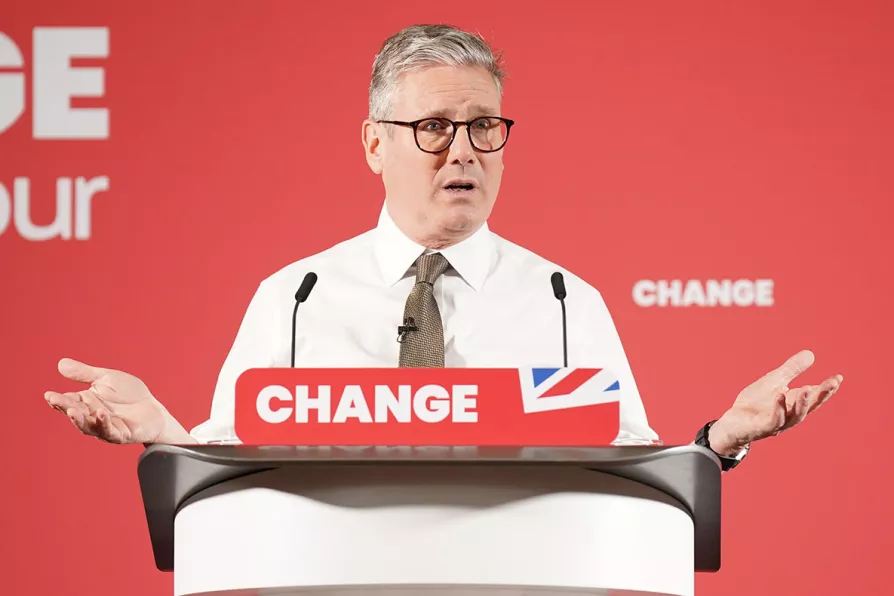Labour makes sabre-rattling a priority

 Labour Party leader Keir Starmer makes his first keynote speech during his visit to Lancing in West Sussex, while on the General Election campaign trail, May 27, 2024
Labour Party leader Keir Starmer makes his first keynote speech during his visit to Lancing in West Sussex, while on the General Election campaign trail, May 27, 2024
LABOUR will embark on a “security sprint” in its first 100 days in office, the party said today in a militaristic start to its election campaign.
Following Prime Minister Rishi Sunak’s proposed revival of conscription for 18-year-olds, Labour leader Sir Keir Starmer rattled his sabre by pledging to put “security” issues at the top of his agenda in his first set-piece campaign speech.
And party officials confirmed reports that it would conduct not one but two security reviews on attaining office — a long-term strategic defence one and a “sprint” assessment of threats.
Similar stories

ANDREW MURRAY wonders whether recent opinion polling and a fresh local authority by-election result in Ilford are an indication that the time is ripe for the left to make inroads

Tax rich instead of cutting benefits, PM told

Starmer’s unseemly rush to the right is part of a historical pattern when Labour is in power, argues ANDREW MURRAY, but there’s no reason why politics in general should follow this trajectory











